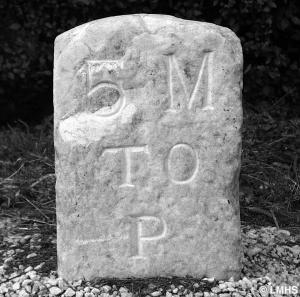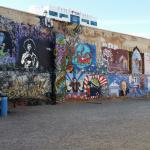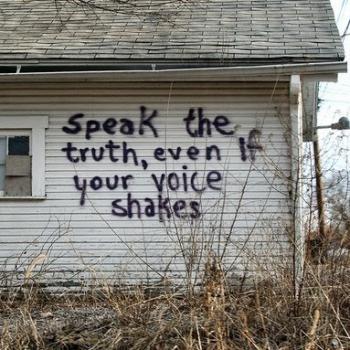Each generation has ways to mark time. Marking time, like marking distances, recalls and reorients us. Milestones, those roadside markers surrounding the outskirts of Philadelphia, were so common while we lived there. Now I think of them more than I did back then. Milestones are not just roadside markers, the ask us to reflect a bit on where we are, and where we are going, and how long have we been traveling.
This ro adside marker is just down the road from where I went to seminary, at Eastern Baptist Theological Seminary (now Palmer Seminary). The seminary has moved, but that marker remains, as it has for over 270 years. We drove past it on the way to grocery shop. Or to church. Or to the hospital. To see it now, invited me to remember – perhaps along with everyone else who has seen it – where are we now, who are we now in relation to who we were the last time we saw it, experienced it, went past it.
adside marker is just down the road from where I went to seminary, at Eastern Baptist Theological Seminary (now Palmer Seminary). The seminary has moved, but that marker remains, as it has for over 270 years. We drove past it on the way to grocery shop. Or to church. Or to the hospital. To see it now, invited me to remember – perhaps along with everyone else who has seen it – where are we now, who are we now in relation to who we were the last time we saw it, experienced it, went past it.
Generations Have Their Markers
I remember my grandparents talking about the Great Depression. A worldwide economic slow-down that affected everyone. Regardless of where you lived, you felt it. I changed you. So much so that the generation that followed remained frugal in the extreme, remembering a time when everything had to be reused and conserved. That was followed by another war to end all wars, but it didn’t.
Later, a generation would speak of the assassination of John Kennedy, at least in the US as a defining moment. A shared grief. And the moments of shared sorrow, concern, and even celebration followed as widely shared experiences. The deaths of Bobby Kennedy and Martin Luther King, Jr. The protests and marches for peace and against the US involvement in Vietnam. And the celebration – more worldwide this time – of the first person to walk on the moon.
Shared Milestones
These are all shared milestones. widely understood markings that engender existential musings of identity, purpose, and character. As the parade of shared moments goes on, they each pull us to reflect not only about the event, but about how different we have become. The impeachment and resignation of President Nixon, the attack of 9/11. And more recently, the marches for black lives in the summer of 2020 following the murder of George Floyd, and the insurrection at the US Capital.
Narrowcasting
And was thinking that we were entering a world in which we would no longer find these larger shared experiences. And then, of course, came the worldwide pandemic. Reversing the trend, for a time at least, that had developed. The trend that my phone, my computer, my social media’s algorithms had been forming for years. The trend that narrowed and narrowed some more, the scope of my vision, my attention, and my world. A pandemic broke through. And as it has continued, many have fought to go back to their previously narrowly cast perspectives, pitting one against the other and manufacturing a new algorithm to keep feeding them only what will conform to the previous points of view.
God and the Milestones
There are over 300 references to remembering in the Hebrew Bible and the New Testament. Remembering carries us, or at least shows that we have been carried over years, to reconciling where we are to where we had been. “Remember the days of old; consider the years of many generations; ask your father, and he will show you, your elders, and they will tell you” (Deuteronomy 32:7). The writer of Ecclesiastes challenges us to remember God’s activity in our lives while we can, before our age and our experiences color, maybe even blemish and prejudice our memories: “Remember also your Creator in the days of your youth, before the evil days come and the years draw near of which you will say, “I have no pleasure in them” (Ecclesiastes 12.1).
There is a way to access these shared moments of grief, concern, sorrow, and celebration and bring to bear upon them grace, goodness, and love. These are essentially theological moments. Theos referring to God, logos referring to word. Words about God. Or as John Calvin pointed out, even our words about ourselves turn toward words about God. Where are we now and where is God? Who are we now in relation to who we were the last time we spoke of the shared experience, and who is God to us now?
















